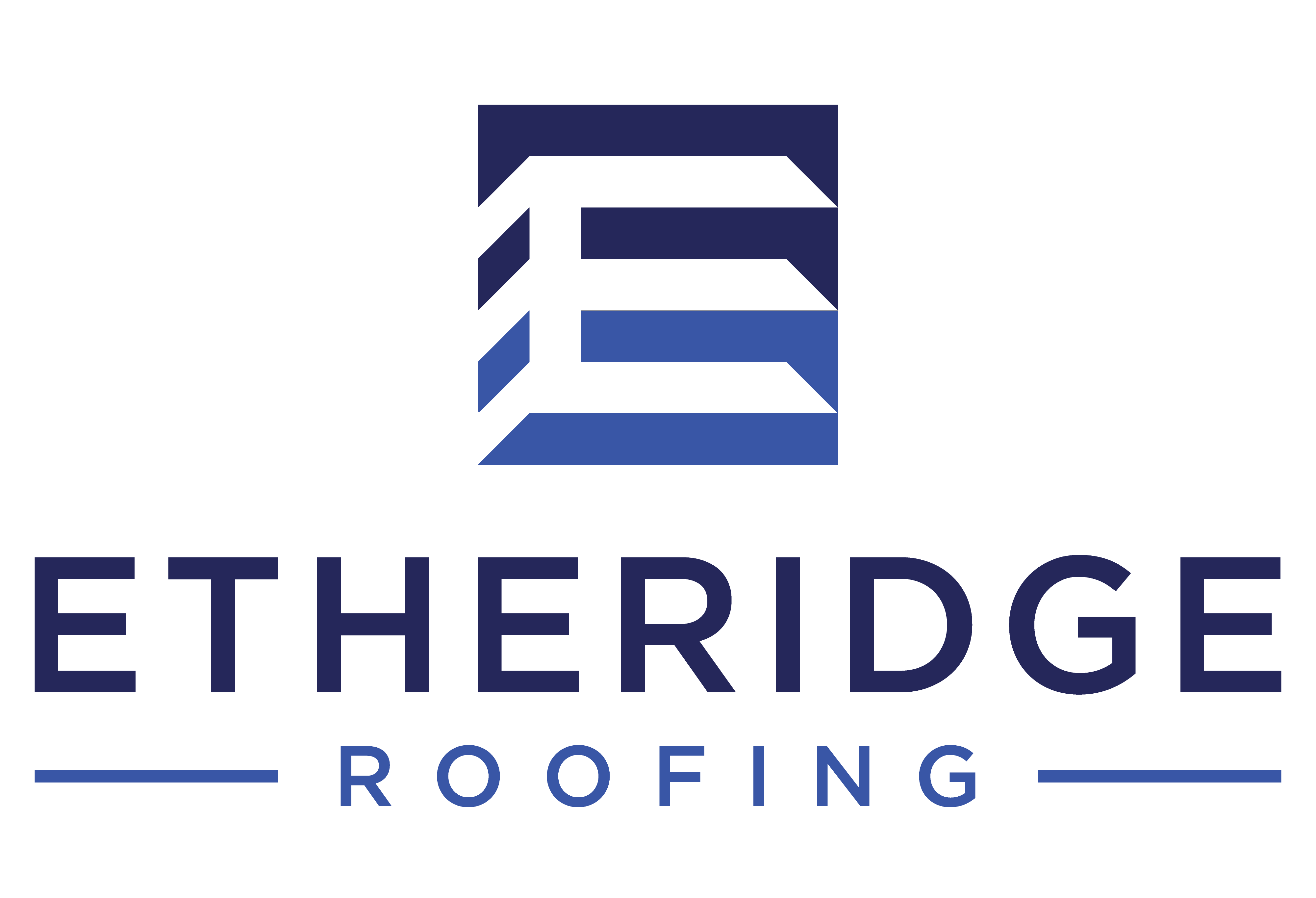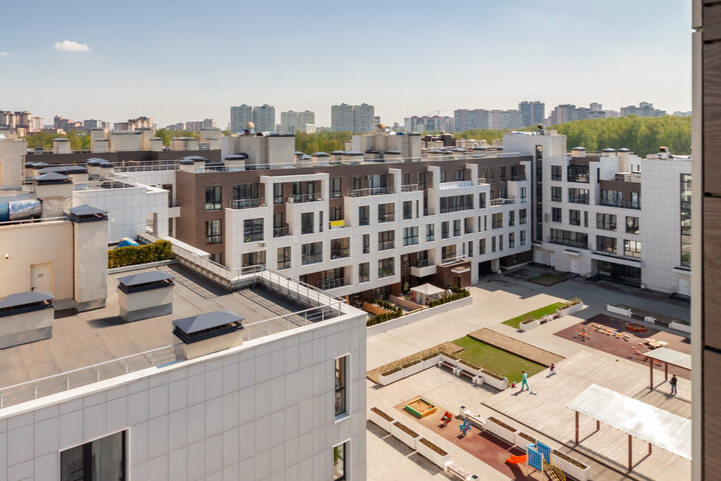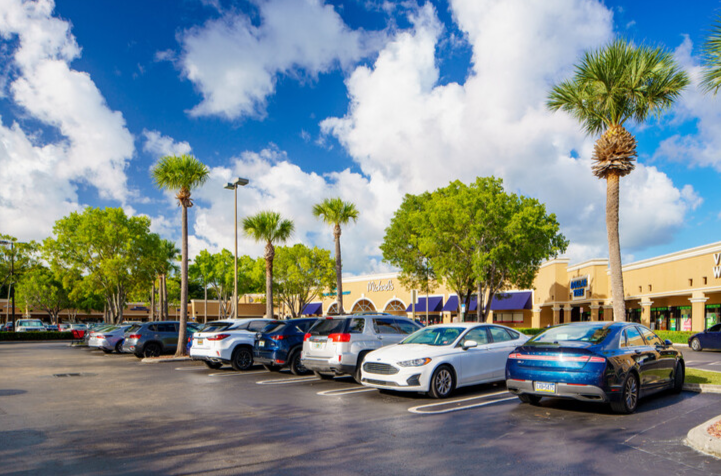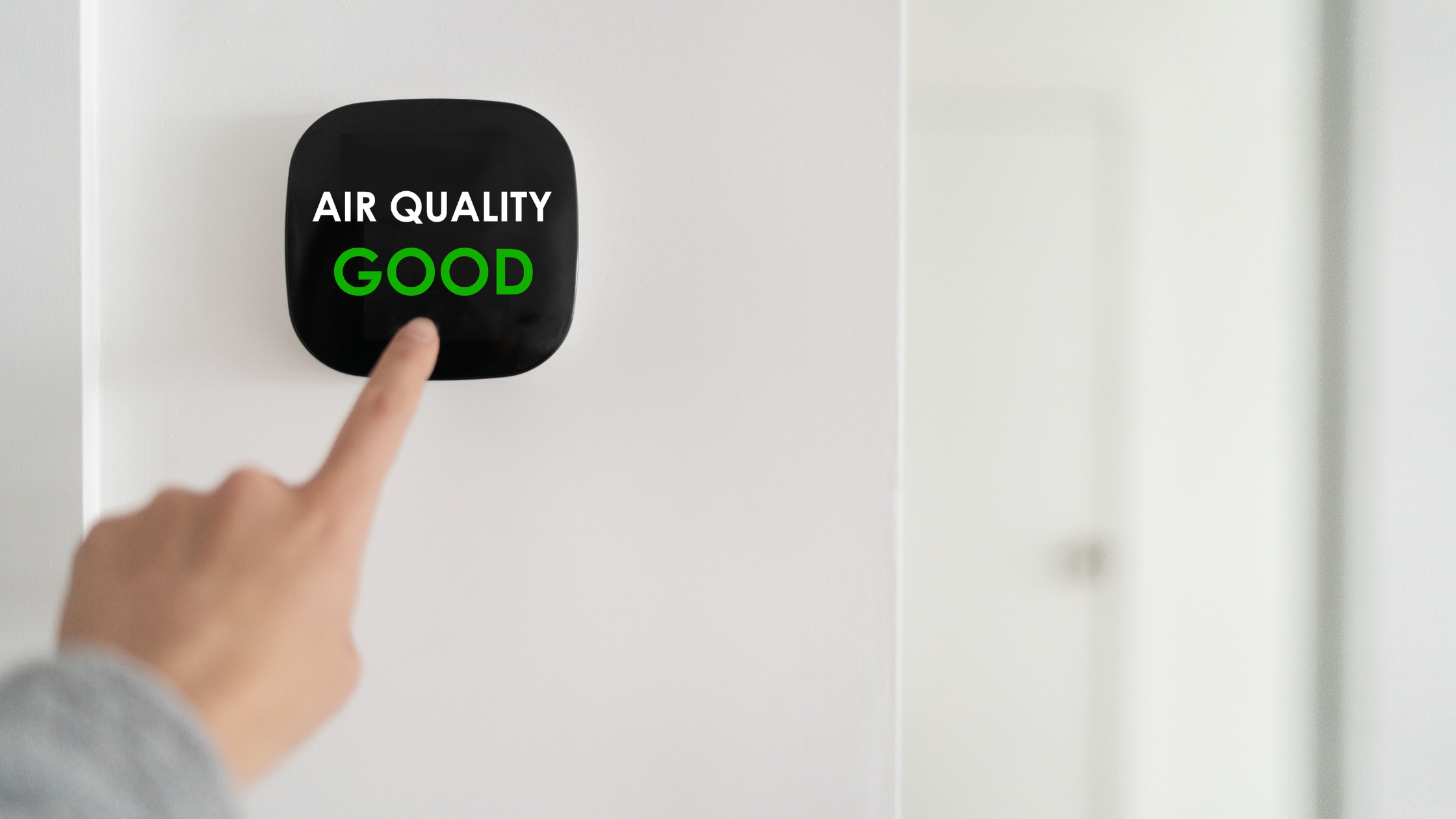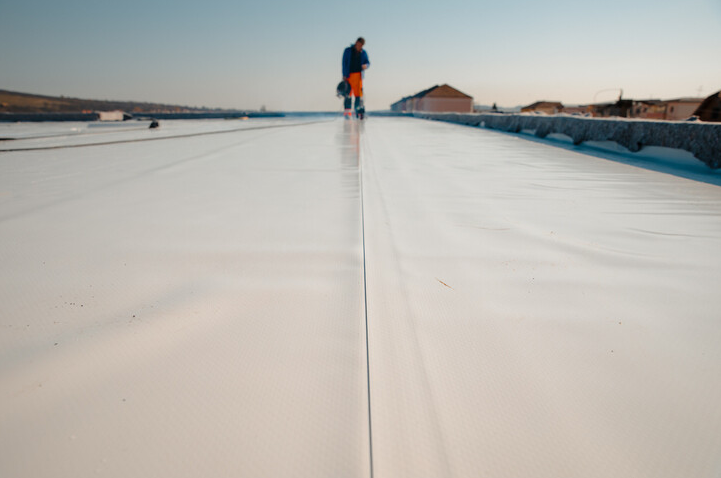A Guide to Commercial Flat Roofing Materials
Choosing the right commercial roofing material is a hefty decision. This choice could have an impact on long-term costs for your business. Taking time to educate yourself on the different options available to you could save you money and headaches later on.
Most Common Types of Commercial Roofs
- Flat Roofs
- Low-Sloped Roofs
- Pitched Roofs
Out of these three, flat roofs are the most popular and common. Why? Let’s discuss the advantages of a commercial flat roof:
- Flat roofs tend to be more cost effective as they require less material due to fewer square footage that needs to be covered.
- They are easier and quicker to install which can ultimately save the business owner money.
- There are lots of options for materials and we will go more into detail on this point later.
- Flat roofs have a variety of color options, although the most popular is white. This is because the white roofing materials have reflective properties and may reduce energy waste from cooling.
- Solar Panels, satellite dishes, and air conditioning can be installed easily on your flat roof making these items less visible from your parking lot and elevating the look of your building.
- Maintenance and drain cleaning is both easier and safer on a flat roof.
Choosing your Commercial Flat Roofing Material
One of the biggest factors in our decision making can sometime be the price differentiation between materials and it can be tempting to elect the cheapest option. Your greatest concern should not focus so much on price but on the expected life-span of your roof. Quality materials may not be the cheapest upfront but they will be the most cost effective in the long run and an investment worth considering.
What are Commercial Flat Roofs made of
There are three main types of commercial flat roofing materials:
- Asphalt: build-up roofing, Mod-Bit (modified Bitumen), and smooth rubber.
- Metal: Steel and Aluminum
- Single-Ply membrane: EPDM (Ethylene Propylene Diene Monomer), TPO (Thermoplastic Polyolefin), and PVC (PolyVinyl Chloride)
The right material for your building/business depends on:
- Your budget and goals
- The kind of business you operate
- The climate and weather conditions in your area
- Amount of foot traffic on your roof
- How well you plan to upkeep and maintain your roof
- The construction of your building’s roof
Now let’s dive into your material options:
ASPHALT
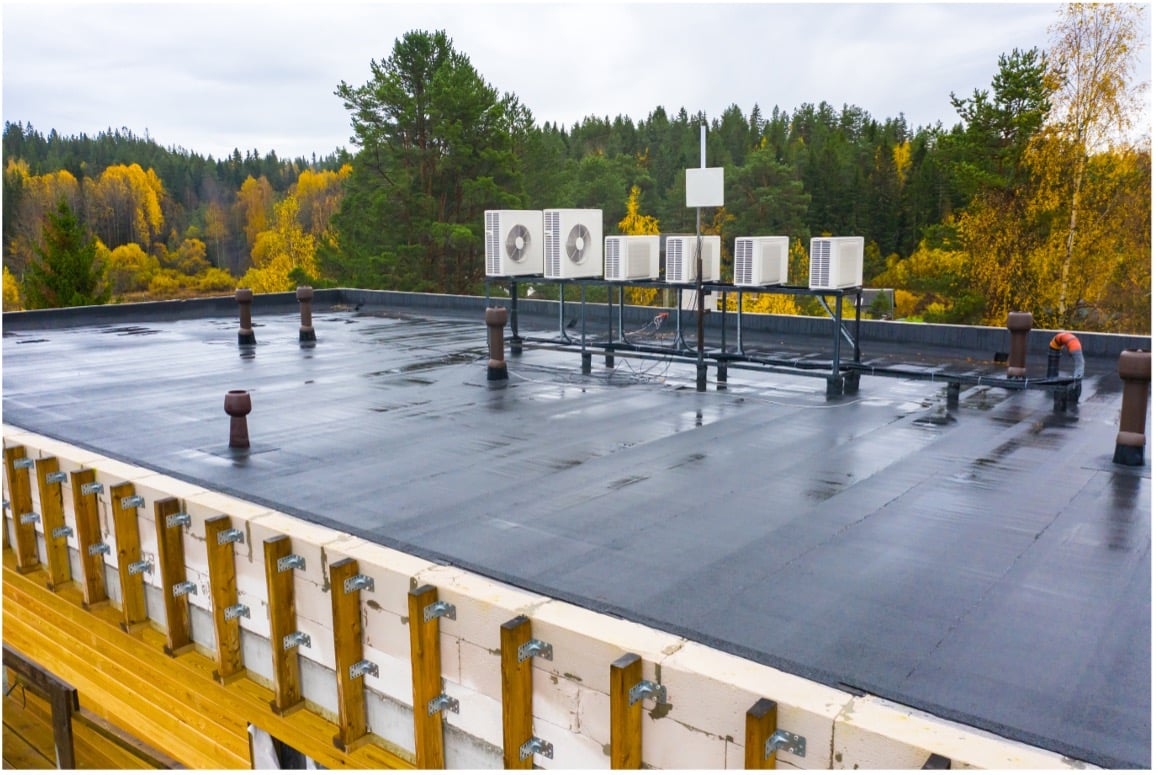
Asphalt is a durable material that can last up to 50 years. It is economical, easy to install and therefore easy to maintain. This material expands and contracts making it convenient for most weather conditions.
What to be aware of:
- Asphalt roofing must be coated with aluminum every 3 years.
- This type of roofing material can make it difficult to locate the source of a leak.
- The hot “torch-down” process needed to install this material may not be suitable for every building.
- This material is not recommended for restaurants or factories since asphalt roofing is known to break down when exposed to certain chemical, grease, and fats.
METAL
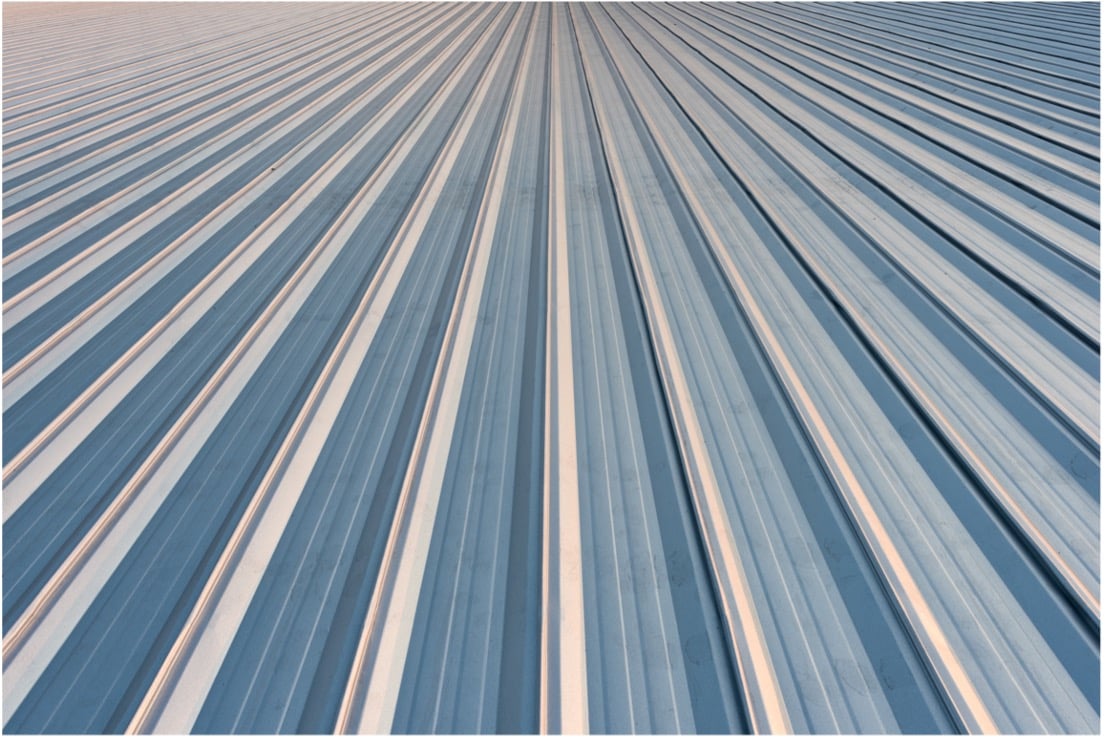
Metal roofing is made of steel or aluminum and is exceptionally durable. Most manufacturers provide a 25-40 year warranty for their metal roofing materials and will typically last as long as the building itself. This material is fire resistant, energy efficient, environmentally friendly, and low maintenance.
What to be aware of:
- The upfront investment of this material will likely be higher than your other options.
- Depending on your business type, the look of this material may be too harsh and not pleasing to the eye.
- Due to constant metal expansion and contraction, it can develop a wavy effect over time.
- This material is not recommended if you have penetrations such as HVAC curbs, exhaust fans, pipes, etc.
- During strong rainfall you will hear loud tapping and it can get very loud during strong storms or hail.
- It can be dangerous to walk on and repair as the metal surface offers no traction when wet.
SINGLE-PLY MEMBRANE
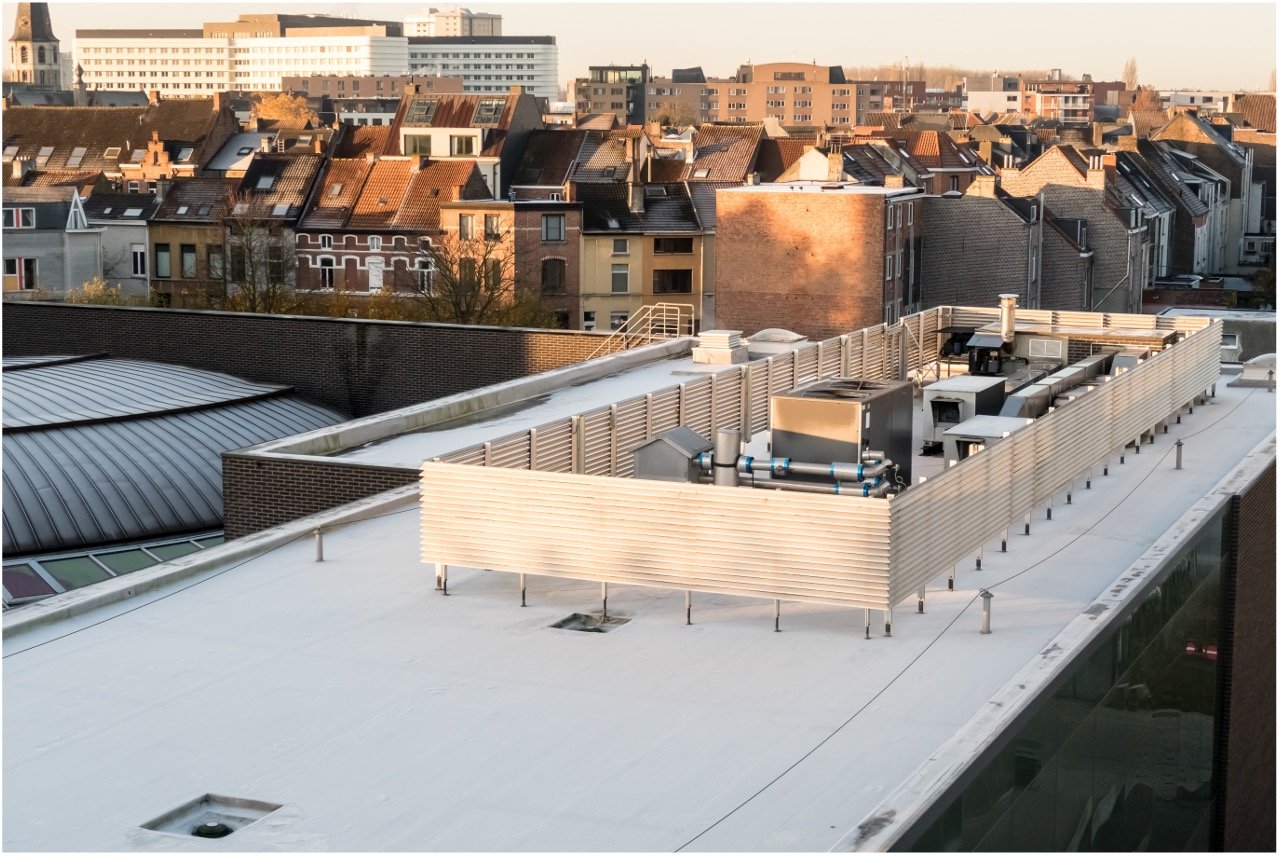
Single-ply membrane is the most commonly used material and the most affordable. It is made of sheets or rubber or thermoplastic material. Single-ply membrane has a simple installation process, is lightweight, is the most energy efficient, and flexible. Due to its lightweight characteristic, it relieves stress on the structure of your building/business.
What to be aware of:
- The membrane can be easily punctured.
- Black EPDM is known to absorb more heat and is considered less energy-efficient than other options.
- More vulnerable to leaks through its seams than other roofing systems.
Let us know what you think. If you have any questions or are in need of commercial flat roofing services contact Etheridge Roofing today!
Posts by Tag
Recent Posts
Popular Posts
Have you ever wondered what goes into a commercial
As a property manager, you know that maintaining...
When choosing the best commercial flat roof for...
Recent Posts
The connection between the quality of our...
Selecting the appropriate roofing system is...
